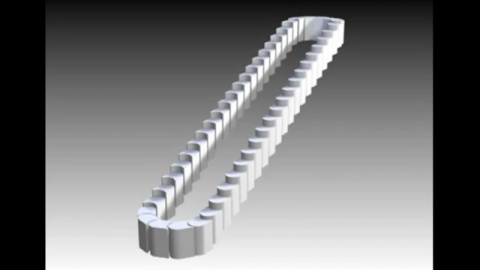Levytator: The World’s First Free-Form Escalator

Since its invention in 1859, the escalator has been the most widely used mode of non-vehicle urban transpiration, ubiquitous everywhere from airports to shopping malls to subways. It is estimated that an escalator is used over 90 billion times a year in the US alone. But the traditional moving staircase has many technical and architectural limitations, with its rigid design and linear structure.
Enter Levytator, the world’s first escalator capable of following free-form curves. Named after its inventor, Jack Levy, an Emeritus Professor of Mechanical Engineering at City University London, the device uses a continuous loop of curved modules, reducing the cost compared to a traditional escalator where redundant steps move underneath each other.
Levytator greatly broadens the architectural vocabulary of moving stairs. The concept has been piloted in the UK, US and China, and City University is now looking for partner organizations and architects to take Levitator to market.
Maria Popova is the editor of Brain Pickings, a curated inventory of miscellaneous interestingness. She writes for Wired UK, GOOD Magazine, Design Observer and Huffington Post, and spends a shameful amount of time on Twitter.





